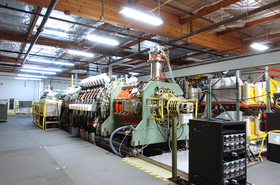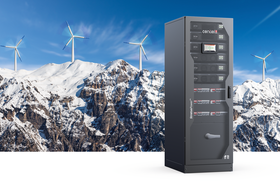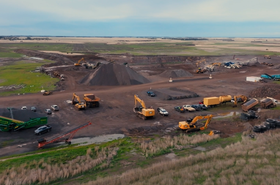Data center players will need to watch what happens at COP28, and be ready to get involved in whatever action follows from the climate summit in Dubai. The trick will be to find good news.
On the opening day, it's too early to draw any conclusions, and too soon to completely dismiss the event - even though environmentalists have slated it as hopelessly compromised by its location, and its leadership, and the conference opened with the grim announcement from UN Secretary General Antonio Guterres that this year will be the hottest on record, at 1.4°C above pre-industrial levels, making the 1.5°C target look even harder to reach.
Dr. Sultan Al Jaber got off to a bad start. As head of the Abu Dhabi National Oil Company (ADNOC), he's an odd choice for President of the event, just as the mega-petropolis Dubai is a bizarre place for an event that should be calling for an end to fossil fuels.
Hope, despite a conflict of interest?
Days before the event started, messages surfaced which showed that ADNOC planned to use the event to seal oil deals. Al Jaber has denied that, and delivered an impassioned speech for change.
But oil barons have always struggled to change their spots, and we can hardly believe they will be able to resist the temptation, when COP28 will be hosting a lot of heads of state, like the UK's Rishi Sunak, and even Joe Biden who have equally found it hard to say no to more oil licenses.
Apparently, it is hard to understand the simple language of Guterres, who called for a "phase-out" of fossil fuels.
But, there are things keeping hope alive. The first day of COP28 saw movement on the scandalous failure of the world's leaders to deliver on previous promises for a fund to help poor nations survive the effects of climate change, Having promised billions at previous COPs, countries including the UAE, UK, and the US have at last unlocked a fraction of that, which Al Jaber says is "north of $420m."
It is, as he said, a "very good start," but more will be needed.
Substance, not stunts
The last week has seen some actions which are, frankly, stunts.
Virgin Atlantic flew one Boeing 787 from London to New York using sustainable aviation fuel. The fuel was made from waste cooking oil and animal fats - a source which is sustainable, but has no prospect of ever producing enough fuel to run any sizable fraction of the aviation industry.
If the aviation industry could get hold of significant amounts of that fuel, they would be taking it from other customers, and other applications - like backup generators for data centers. Those looking for non-fossil fuel would turn to non-sustainable sources like palm oil.
The oil industry will likely make promises to reduce the methane pollution it leaks from its systems. And we must give half a cheer to ExxonMobil, which this week grudgingly agreed to join a sensible and reasonable UN methane monitoring scheme it has fought against for years.
A methane agreement will be a good thing. We don't want methane leaking from the necessary remnant of oil and gas that must continue for some time. But it's not a step to that necessary phase-out.
So, where is there hope?
The nuclear industry's big pitch to be part of transition strategies is one that deserves to be heard. Nuclear is a low-carbon energy source that delivers the sort of performance we need, and we need a concerted industrial effort to rescue it from decades of poor delivery.
Carbon capture keeps getting a bit better. This week, startup Graphyte sold 10,000 tons of carbon capture to American Airlines - a company which should definitely be driving that market. We're not told how much American paid for this deal, but Graphyte is promising a game-changing $100 per ton, which is a substantial improvement over the $1000 we were at earlier this year.
There have been reports that China, while still building coal power stations, is turning the corner. It has promised to bring emissions to a peak before 2030, and now reports say they will be in "structural decline" next year
The important thing is the big picture. Sustainable fuel and carbon capture are great, but they will scale up slowly, and we will have to turn to ways to scale back demand, or that peak in emissions will be too high, and the decline too slow.
The data center industry should also look at the big picture - the sum total. Your data centers use renewable energy, but is your business growing faster than the rate at which the energy industry can grow the total of renewable power available? If so, then you are part of the problem.
Paradoxically, a final source of hope just might emerge from the bizarre location of COP28.
Oil barons will have to face their accusers - let's be honest, their victims - in whatever polite forms the summit allows. Other industries will look on and witness what takes place.
We should all take what positive gains we can from it, and look for ways to work for more.





